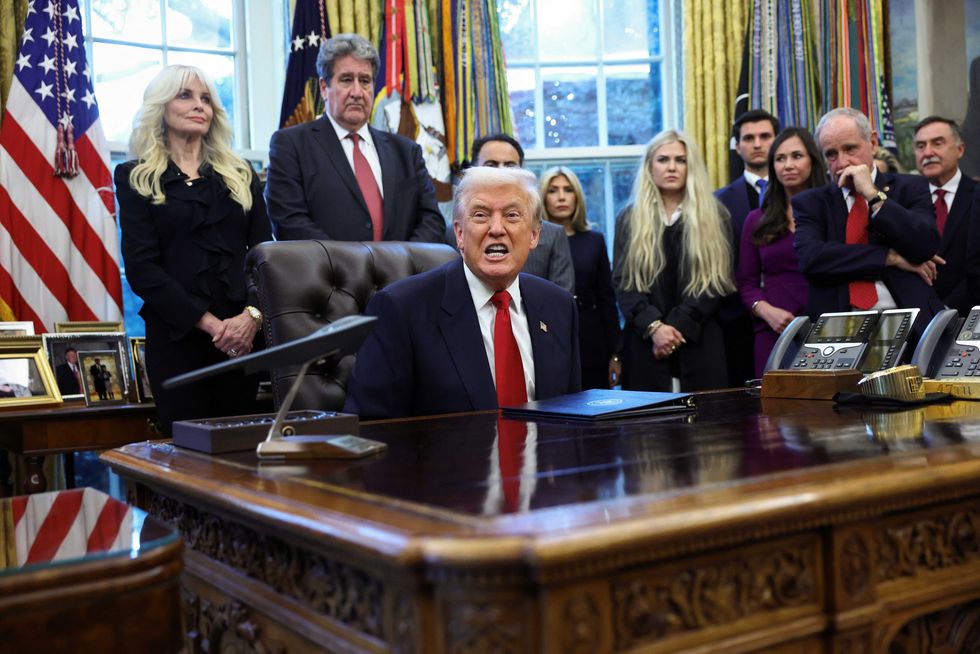UPDATE: New reports confirm that the impact of Donald Trump’s 2025 tariffs is devastating American consumers, with economists warning of a potential tax hike reaching $1,600 per household. The latest analysis from Goldman Sachs reveals that U.S. businesses have passed on 55 percent of the import tax costs to consumers, marking a severe financial blow for American families.
The urgency of this situation cannot be overstated. As the Biden administration grapples with rising inflation, Trump’s tariffs are creating an unprecedented burden on the American populace, particularly the working poor. The Tax Foundation estimates that these tariffs equate to an average tax increase of $1,300 in 2025, with projections indicating it will climb to $1,600 in 2026. This regressive tax system means that low-income workers, such as a McDonald’s employee earning $15,000 annually, pay the same rate as millionaires, further aggravating economic disparities.
Trump’s administration has touted the billions generated from tariffs as a financial success, but what is largely ignored is the source of these funds: the pockets of American consumers and businesses. This situation raises important legal and ethical questions, as small business owners are already filing lawsuits against the government, claiming that the imposition of tariffs exceeds executive authority and is unconstitutional. Should the Supreme Court side with these plaintiffs, it could lead to significant financial repercussions for the federal government and a major political upheaval.
The repercussions of Trump’s tariffs are not new; they mirror past trends where American consumers bore the brunt of import taxes. A university economist’s report indicated that tariffs cost Americans $7.2 billion by the end of 2018. The current situation, however, is poised to worsen as Trump implements larger and less targeted tariffs across multiple countries.
Consumers can expect higher prices on essentials like coffee, meats, seafood, and even basic items such as toothpaste and toilet paper. For the 37 million Americans living below the poverty line, this spike in costs is particularly cruel. Many of these individuals spend approximately 82 percent of their budgets on basic needs, leaving little room for discretionary spending.
Critics argue that Trump’s tariffs contribute to generational poverty, making it increasingly difficult for vulnerable populations to meet their fundamental needs. The implications are dire, particularly as Trump’s proposed federal budget includes cuts to social service programs that support low-income individuals, further eroding safety nets established during previous Democratic administrations.
As the situation unfolds, the potential for a class-action lawsuit by affected consumers looms large. Though the likelihood of success may be slim given the current composition of the Supreme Court, the political ramifications could be profound, forcing a national conversation on economic inequality and the role of tariffs in U.S. policy.
Americans are urged to stay informed about these developments as the impact of Trump’s tariffs continues to evolve, with significant implications for both the economy and the everyday lives of millions. The urgency of the situation warrants immediate attention, and the financial strain on American families is set to amplify in the coming months.
As this story develops, expect more updates on the ongoing implications of Trump’s economic policies and their effects on the American middle and lower classes.





































































